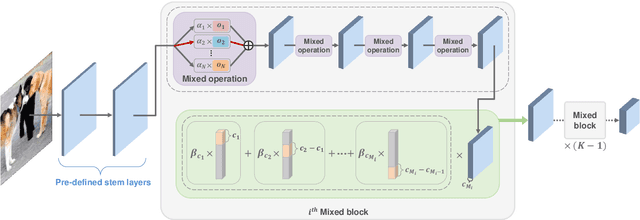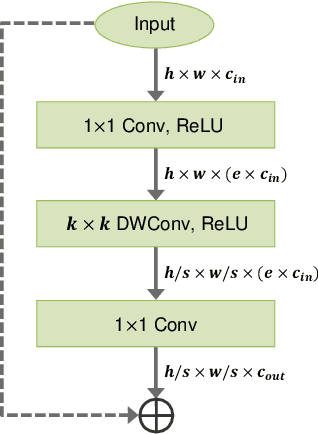Neural Architecture Adaptation for Object Detection by Searching Channel Dimensions and Mapping Pre-trained Parameters
Paper and Code
Jun 17, 2022



Most object detection frameworks use backbone architectures originally designed for image classification, conventionally with pre-trained parameters on ImageNet. However, image classification and object detection are essentially different tasks and there is no guarantee that the optimal backbone for classification is also optimal for object detection. Recent neural architecture search (NAS) research has demonstrated that automatically designing a backbone specifically for object detection helps improve the overall accuracy. In this paper, we introduce a neural architecture adaptation method that can optimize the given backbone for detection purposes, while still allowing the use of pre-trained parameters. We propose to adapt both the micro- and macro-architecture by searching for specific operations and the number of layers, in addition to the output channel dimensions of each block. It is important to find the optimal channel depth, as it greatly affects the feature representation capability and computation cost. We conduct experiments with our searched backbone for object detection and demonstrate that our backbone outperforms both manually designed and searched state-of-the-art backbones on the COCO dataset.
 Add to Chrome
Add to Chrome Add to Firefox
Add to Firefox Add to Edge
Add to Edge